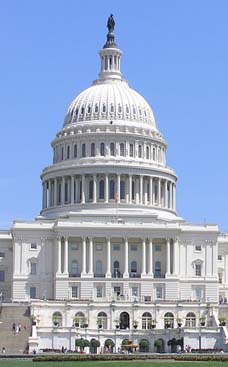
On November 9, 2004 appellant, then a 25-year-old teacher, filed an occupational disease claim alleging that he developed adjustment disorder with depressed mood upon his return to the United States from his volunteer service in Thailand. He became aware of his condition on January 21, 2004. Appellant was employed with the employing establishment from January 26, 2002 to April 30, 2004.
SHAWN E. GREEN, Appellant and PEACE CORPS, Washington, DC, Employer
SHAWN E. GREEN, Appellant
and
PEACE CORPS, Washington, DC, Employer
___________________________________________
Docket No. 05-1337
Issued November 3, 2005
Appearances: Case Submitted on the Record
Shawn E. Green, pro se
Office of Solicitor, for the Director
DECISION AND ORDER
Before:
ALEC J. KOROMILAS, Chief Judge
DAVID S. GERSON, Judge
WILLIE T.C. THOMAS, Alternate Judge
JURISDICTION
On June 7, 2005 appellant filed a timely appeal from the Office of Workers’ Compensation Programs’ merit decision dated May 5, 2005 which denied his claim for an emotional condition. Pursuant to 20 C.F.R. §§ 501.2(c) and 501.3, the Board has jurisdiction over the merits of the case.
ISSUE
The issue is whether appellant met his burden of proof in establishing that he sustained an emotional condition in the performance of duty.
FACTUAL HISTORY
On November 9, 2004 appellant, then a 25-year-old teacher, filed an occupational disease claim alleging that he developed adjustment disorder with depressed mood upon his return to the United States from his volunteer service in Thailand. He became aware of his condition on January 21, 2004. Appellant was employed with the employing establishment from January 26, 2002 to April 30, 2004.
Appellant submitted an undated statement advising that upon return to the United States from his Peace Corps service in Thailand he sought treatment from a therapist after he was unable to obtain a job and had to move back home with his parents. He advised that prior to his work with the employing establishment and since his return to the United States he was experiencing difficulty adjusting to this stage of his life. Appellant submitted an undated psychological statement and noted that he sought therapy while in college periodically over a four-year period for issues relating to procrastination in writing papers, desire to have a long-term romantic relationship and conflict with his parents. Also submitted was a report from Susan Okun, a licensed social worker, dated December 14, 2004, who noted that appellant was not able to find a job after returning from his Peace Corps service and presented in October 2004 with symptoms of depression, sadness, lethargy, insomnia and confusion about professional direction and job search. She noted that appellant resided with his parents and there was a significant history of family dysfunction and conflict and noted that his uncertain job prospects, financial stresses and family dynamics affected his mood and energy level. Ms. Okun diagnosed adjustment disorder with depressed mood, occupational problems, unsuccessful attempts in obtaining full-time employment, economic problems, financial stress due to lack of adequate employment, problem with primary support group and difficult family dynamics. She noted that appellant was working and living independently before he began working with the Peace Corps service and while he was working in Thailand he performed meaningful work, lived independently and established significant relationships.
Also submitted was an employing establishment health status review dated February 15, 2001 in which appellant noted essentially good health and advised that he underwent mental health counseling for more than three months while in college. In a mental health treatment summary dated July 5 and 10, 2001, Dr. Linda Russell, a psychologist, noted treating appellant from September 25, 1998 to May 25, 2000 for issues regarding a romantic relationship, time management and family dynamics. She diagnosed phase of life problems. Also submitted were treatment notes from February 12, 2002 to June 28, 2004 which noted that appellant was treated for various minor injuries, bronchitis and sinusitis. In a mid-service health evaluation dated November 1, 2002, appellant noted that he was in good health. He noted that he developed a fungal infection, experienced general stiffness after exercising and an allergic reaction to a bee sting causing swelling around the mouth, all conditions which have resolved. In a close of service health evaluation dated March 14, 2004, the physician noted that appellant’s hearing had worsened in the last two years and he developed bronchitis and sinusitis. A statement from Dr. John L. Williams, Country Director of the Peace Corps for Thailand, dated April 2004 noted that appellant entered service on January 28, 2002 and served as a teacher and project facilitator. Dr. Williams noted that appellant excelled in his study and use of the Thai language in his work assignments and in community life and scored superior in his command of the Thai language.
The employing establishment submitted a statement from Mary Menzenwerth, Office of Medical Services, dated January 6, 2005, who noted that appellant had a documented history of psychotherapy. Ms. Menzenwerth indicated that on April 28, 2004 appellant reported to the medical officer concerns with issues on returning to the United States and his family and on April 30, 2004 the medical officer authorized three counseling sessions. She noted that appellant was seen for three therapy sessions in October 2004 and requested additional counseling sessions.
By letter dated January 12, 2005, the Office asked appellant to submit additional information including a detailed description of the employment factors or incidents that he believed contributed to his claimed illness, and a comprehensive medical report from his treating physician which included a reasoned explanation as to how the specific work factors or incidents identified by appellant had contributed to his claimed emotional condition.
In response, appellant submitted a letter dated January 27, 2004, and indicated that his condition did not arise during his service with the Peace Corps but after his service ended. Appellant advised that if he had not served in the Peace Corps he would not have this condition. He noted that before and during his service he was functioning independently with regard to a residence and occupation. Upon return to the United States he was forced to live with his parents and was unemployed which caused him to be depressed, anxious and isolated. Also submitted were statements from Dr. Larry DiFiore, a psychologist, dated December 10, 2004, and Ms. Okun dated January 19, 2005, which noted that Ms. Okun was working under Dr. DiFiore’s direct clinical supervision in treating appellant. Appellant submitted a duplicate report of Ms. Okun’s dated December 14, 2005 which was signed by Dr. DiFiore.
In a May 5, 2005 decision, the Office denied appellant’s claim finding his claimed condition did not arise out of his Peace Corps service.
LEGAL PRECEDENT
Section 10.730 of Title 20 of the Code of Federal Regulations[1] addresses the issue of conditions of coverage for Peace Corps volunteers injured while serving outside the United States. This regulation interprets section 8142(c)(3) of the Federal Employees’ Compensation Act.[2] It therein provides that an injury sustained by a Peace Corps volunteer when he is outside the United States is deemed proximately caused by his employment, unless the injury or illness was caused by the claimant’s willful or intentional misconduct; the illness is shown to have preexisted the period of service abroad; or the injury or illness claimed is a manifestation of symptoms of, or consequent to, a preexisting congenital defect or abnormality.
To establish his claim that he sustained an emotional condition in the performance of duty, appellant must submit the following: (1) medical evidence establishing that he has an emotional or psychiatric disorder; (2) factual evidence identifying employment factors or incidents alleged to have caused or contributed to his condition; and (3) rationalized medical opinion evidence establishing that the identified compensable employment factors are causally related to his emotional condition.[3] Workers’ compensation law does not apply to each and every injury or illness that is somehow related to an employee’s employment. In the case of Lillian Cutler,[4] the Board explained that there are distinctions to the type of employment situations giving rise to a compensable emotional condition arising under the Act.[5] There are situations where an injury or an illness has some connection with the employment but nevertheless does not come within the concept or coverage under the Act.[6] When an employee experiences emotional stress in carrying out his employment duties, and the medical evidence establishes that the disability resulted from his emotional reaction to such situation, the disability is generally regarded as due to an injury arising out of and in the course of employment. This is true when the employee’s disability results from his emotional reaction to a special assignment or other requirement imposed by the employing establishment or by the nature of his work.[7] There are situations where an injury or an illness has some connection with the employment but nevertheless does not come within the concept or coverage under the Act.
In cases involving emotional conditions, the Board has held that, when working conditions are alleged as factors in causing a condition or disability, the Office, as part of its adjudicatory function, must make findings of fact regarding which working conditions are deemed compensable factors of employment and are to be considered by a physician when providing an opinion on causal relationship and which working conditions are not deemed factors of employment and may not be considered.[8] If a claimant does implicate a factor of employment, the Office should then determine whether the evidence of record substantiates that factor. When the matter asserted is a compensable factor of employment and the evidence of record establishes the truth of the matter asserted, the Office must base its decision on an analysis of the medical evidence.[9]
ANALYSIS
Appellant claimed that he developed an adjustment disorder with depressed mood upon his return to the United States from his Peace Corps service in Thailand. The Board notes that an injury sustained by a Peace Corps volunteer when he is outside the United States is deemed proximately caused by his employment, unless the injury or illness was caused by the claimant’s willful or intentional misconduct; the illness is shown to have preexisted the period of service abroad; or the injury or illness claimed is a manifestation of symptoms of, or consequent to, a preexisting congenital defect or abnormality.
In this instance, the evidence indicates that appellant’s condition arose after his service was completed under circumstances independent of his Peace Corps service which related to his unsuccessful attempts in obtaining full-time employment in the United States, financial stress due
to lack of adequate employment, and difficult family dynamics.[10] Specifically, appellant’s statement dated January 27, 2004 advised that his condition did not arise during his Peace Corps service, rather his symptoms arose after his service ended which he attributed to unsuccessful attempts in obtaining full-time employment, financial stress due to lack of adequate employment, and difficult family dynamics. Appellant further noted that before and during his service he was functioning independently with regard to both residence and occupation. He noted that upon return to the United States, after his Peace Corps service was completed, he was unable to find a job and had to reside with his parents and he experienced depression, anxiety, isolation and other symptoms. Additionally, the report from Ms. Okun and Dr. DiFiore dated January 14, 2005 noted that while appellant was in the Peace Corps he did meaningful work and lived independently and upon return to the United States appellant reported that the stresses of living with his parents and being unemployed contributed to his emotional condition. The Office denied appellant’s claim noting that his emotional condition which resulted from readjusting from life in the United States was not covered under the Act because it did not arise out of the Peace Corps service as required under the statute.[11] The Board finds that the Office properly determined that appellant’s condition arose after his service was completed. The presumption of causal relationship only exists for injuries sustained when he is outside the United States. Thus, the presumption of causal relationship provided by 5 U.S.C. § 8142(c)(3) does not apply.[12]
Accordingly, pursuant to 20 C.F.R. § 10.730(b), appellant has the burden of proving, by the submission of substantial and probative evidence that his claimed emotional condition was sustained in the performance of duty with the Peace Corps.[13]
Appellant alleged that his emotional condition was caused by his frustration about employment, uncertain job prospects, financial stresses and family dynamics. The Board has found that disabling conditions resulting from an employee’s feeling of job insecurity, job loss or the desire for a different job do not constitute personal injury sustained while in the performance of duty within the meaning of the Act. When the evidence demonstrates feelings of job insecurity and nothing more, coverage will not be afforded because such feelings are not sufficient to constitute a personal injury sustained in the performance of duty within the meaning of the Act. In these cases, the feelings are considered to be self-generated by the employee as they arise in situations not related to assigned duties.[14] Appellant has not established a compensable factor of employment with regard to this allegation.
To the extent that appellant’s allegations focus on his frustration at not being permitted to work in a particular environment or to hold a particular position, the Board has held that denials by an employing establishment of a request for a different job, promotion or transfer are not compensable factors of employment absent a showing of error or abuse as they do not involve the employee’s ability to perform his or her regular or specially assigned work duties but rather constitute his or her desire to work in a different position.[15] Appellant has presented no corroborating evidence to support that the employing establishment erred or acted unreasonably. The Board notes that appellant’s reaction to such conditions and incidents at work must be considered self-generated in that it resulted from his frustration about employment, diminishing finances and family dynamics.[16] Therefore, he has not established a compensable factor of employment in this regard.
CONCLUSION
The Board finds that the evidence fails to establish that appellant sustained an emotional condition in the performance of duty.[17]
ORDER
IT IS HEREBY ORDERED THAT the May 5, 2005 decision of the Office of Workers’ Compensation Programs is affirmed.
Issued: November 3, 2005
Washington, DC
Alec J. Koromilas, Chief Judge
Employees’ Compensation Appeals Board
David S. Gerson, Judge
Employees’ Compensation Appeals Board
Willie T.C. Thomas, Alternate Judge
Employees’ Compensation Appeals Board
[1] 20 C.F.R. § 10.730.
[2] 5 U.S.C. § 8142.
[3] Donna Faye Cardwell, 41 ECAB 730 (1990).
[4] 28 ECAB 125 (1976).
[5] 5 U.S.C. §§ 8101-8193.
[6] See Anthony A. Zarcone, 44 ECAB 751, 754-55 (1993).
[7] Lillian Cutler, supra note 4.
[8] See Norma L. Blank, 43 ECAB 384, 389-90 (1992).
[9] Id.
[10] To the extent that appellant had a preexisting emotional condition, the record indicates that this condition was asymptomatic during his Peace Corps service and that he only became symptomatic after his return to the United States and after his Peace Corps service ended.
[11] Supra note 2.
[12] See also Federal (FECA) Procedure Manual, Part 2 -- Claims, Special Act Cases, Chapter 2.1700.4.c(3)(a) (September 1995) (a volunteer who returns to the United States immediately after completing service abroad will be terminated in this country).
[13] See Joe T. Williams, 44 ECAB 518 (1993).
[14] Katherine A. Berg, 54 ECAB ___ (Docket No. 02-2096, issued December 23, 2002); see also Thomas D. McEuen, 41 ECAB 387 (1990), reaff’d on recon., 42 ECAB 566 (1991); Lillian Cutler, supra note 4.
[15] Hasty P. Foreman, 54 ECAB ___ (Docket No. 02-723, issued February 27, 2003).
[16] Tanya A. Gaines, 44 ECAB 923, 934-35 (1993).
[17] As appellant has failed to establish a compensable employment factor, the Board need not address the medical evidence of record; see Margaret S. Krzycki, 43 ECAB 496 (1992).

















